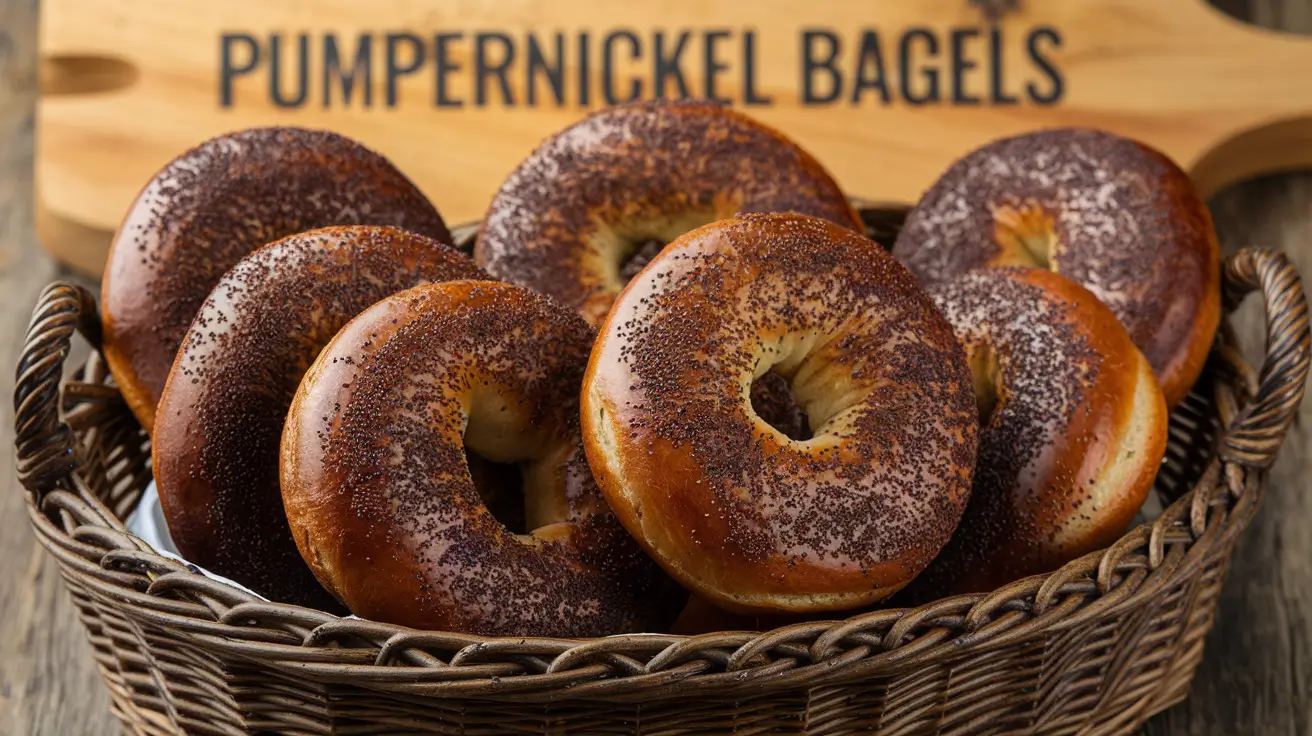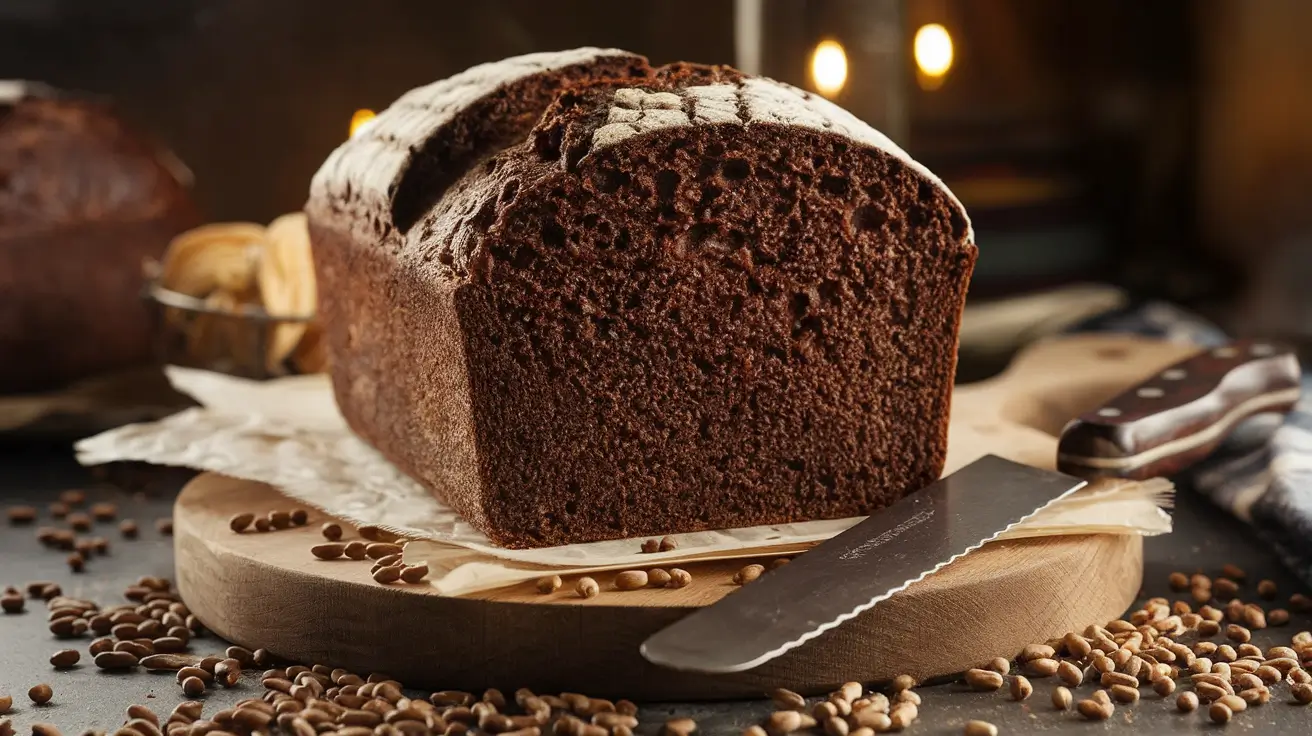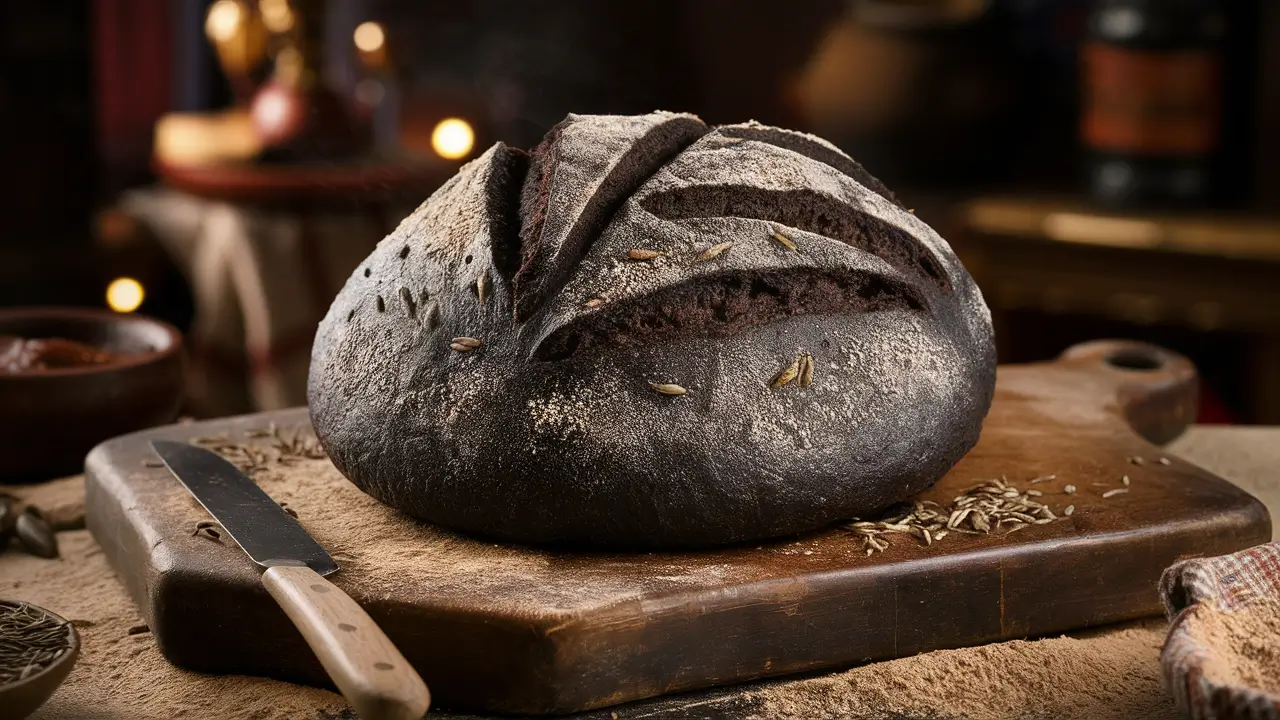Health Benefits of Black Bread: A Nutrient-Packed Superfood for a Healthier Life

In the world of healthy eating, we often find ourselves drawn to superfoods—those nutrient-dense powerhouses that promise to elevate our well-being. But what if one of the most powerful superfoods has been sitting on bakery shelves all along? Black bread, a traditional staple in many cultures, has been quietly offering its incredible benefits to those who know its value. From its rich fiber content to its lower glycemic index, black bread can be a game-changer in your journey to better health.
If you’re looking for a way to add nutrient-rich foods to your diet while still enjoying the flavors of wholesome, hearty bread, black bread may be the perfect option for you. Let’s dive deep into the world of black bread and discover how it can benefit your health in ways you might not expect.
What is Black Bread? Understanding This Traditional Superfood
Black bread—often made with rye flour or whole grain—is a type of bread that has been enjoyed for centuries. In some parts of the world, it’s a dietary staple, known for its dense texture, earthy taste, and impressive nutritional profile. But how does black bread differ from the more common white bread, and why is it considered a healthier alternative?
The secret lies in its ingredients and preparation. Black bread is typically made from whole grain rye flour or a mixture of rye and wheat flour. This gives it its characteristic dark color and slightly tangy flavor. In contrast, white bread is made from refined wheat flour, stripped of much of its fiber and nutrients during processing.
Black bread’s traditional preparation often involves sourdough fermentation, which helps break down the gluten in the rye and improves digestibility. Unlike white bread, which can cause rapid spikes in blood sugar, black bread’s whole grains and natural fermentation process make it a far better choice for stable energy and long-lasting fullness.
Key Ingredients in Black Bread:
- Rye flour or a combination of rye and wheat
- Sourdough starter or yeast for fermentation
- Molasses or dark syrups, which add flavor and depth
- Whole seeds such as sunflower, flax, or sesame, offering an extra nutrient boost
By choosing black bread over its more processed counterparts, you’re opting for a nutritionally superior option that supports digestive health, stabilizes blood sugar, and provides essential vitamins and minerals.
Nutritional Profile of Black Bread: What Makes It a Superfood?
You might wonder what specifically makes black bread a nutritional powerhouse. The answer lies in its nutrient-dense ingredients, high fiber content, and complex carbohydrates. Let’s break it down further so you can see why black bread deserves a place on your plate.
Nutritional Breakdown of Black Bread:
- High Fiber Content: One of the standout features of black bread is its high fiber content. In just one slice, you’re getting a significant portion of your daily recommended intake of fiber, which supports digestion, promotes satiety, and helps regulate cholesterol levels.
- Rich in Antioxidants: Whole grain rye flour contains antioxidants such as lignans, which can reduce inflammation and lower the risk of certain chronic diseases.
- Packed with Vitamins and Minerals: Black bread is rich in B vitamins, which are essential for energy production and brain function. It also provides key minerals like magnesium, iron, and zinc, all of which support overall health and immunity.
- Low Glycemic Index: If you’re looking to manage blood sugar levels, black bread is an excellent choice. Its low glycemic index means it won’t cause rapid blood sugar spikes, making it ideal for those with diabetes or insulin resistance.
Here’s a quick look at the nutrients packed into every slice of black bread:
Nutrients in Black Bread:
| Nutrient | Amount (per slice) | Health Benefits |
|---|---|---|
| Fiber | 5g | Aids digestion, supports heart health |
| Protein | 3g | Builds muscle, supports metabolism |
| Magnesium | 10% DV | Promotes energy production, nerve function |
| Iron | 8% DV | Supports red blood cell production |
| Antioxidants | High | Reduces inflammation, fights free radicals |
By eating black bread regularly, you’re fueling your body with essential nutrients that help keep your energy stable, your digestive system functioning smoothly, and your overall health in top condition.
Top 5 Health Benefits of Black Bread
As you can see, black bread is more than just a tasty addition to your meal. It offers an impressive array of health benefits that can have a significant impact on your well-being. Below, we’ll dive into the top five reasons why you should consider incorporating black bread into your daily diet.
1. Improved Digestive Health
Thanks to its high fiber content, black bread is a fantastic option for improving digestive health. Fiber not only helps keep your digestive system regular, but it also feeds the beneficial bacteria in your gut, promoting a healthier microbiome. For those who suffer from constipation or other digestive issues, black bread can provide much-needed relief.
2. Stabilizes Blood Sugar Levels
For individuals with diabetes or anyone looking to maintain steady blood sugar levels, black bread’s low glycemic index makes it a smart choice. It’s digested more slowly than white bread, resulting in more gradual increases in blood sugar and insulin. This can help prevent sugar crashes and spikes, leading to more sustained energy throughout the day.
3. Boosts Heart Health
Black bread is rich in fiber and antioxidants, both of which are known for their positive effects on heart health. Fiber helps lower LDL (bad) cholesterol, while antioxidants reduce inflammation that can lead to heart disease. By incorporating black bread into your diet, you’re actively working to protect your heart.
4. Supports Weight Loss
If weight management is your goal, black bread could be your new best friend. The fiber in black bread not only helps you feel full for longer, but it also reduces the likelihood of overeating. Unlike refined carbohydrates that leave you craving more, black bread’s complex carbohydrates are slow to digest, keeping you satisfied for hours.
5. Enhances Immune System
With its abundance of vitamins and minerals—particularly zinc and iron—black bread can help bolster your immune system. Zinc plays a crucial role in immune function, and iron is necessary for the production of hemoglobin, which carries oxygen to your body’s cells. A diet rich in these nutrients helps keep your immune defenses strong, reducing your chances of illness.
How to Incorporate Black Bread into Your Diet
Now that you understand the amazing health benefits of black bread, you might be wondering how to add it to your meals. Thankfully, black bread is incredibly versatile and can be enjoyed in a variety of ways. Here are some simple tips and recipes to help you get started.
Tips for Enjoying Black Bread Daily:
- Toast with Toppings: Start your day with black bread toast, topped with avocado, eggs, or smoked salmon for a nutrient-packed breakfast.
- Hearty Sandwiches: Use black bread as the base for your favorite sandwiches, paired with lean proteins like turkey or chicken, and a variety of fresh veggies.
- Side for Soups and Salads: Black bread pairs beautifully with soups, stews, and salads. Its dense texture holds up well when dipped into warm broth or spread with hummus.
Recipe for a Simple Black Bread Sandwich:
Here’s a delicious and easy way to enjoy black bread in a sandwich. Packed with healthy fats, lean protein, and fiber, this recipe is perfect for a nutritious lunch or dinner.
| Ingredient | Quantity |
|---|---|
| Black bread slices | 2 |
| Avocado (sliced) | 1/2 |
| Smoked salmon | 50g |
| Olive oil | 1 tbsp |
| Lemon juice | 1 tsp |
| Salt and pepper | To taste |
- Toast the black bread slices until crispy.
- Spread the sliced avocado on one side of the bread.
- Top with smoked salmon, then drizzle with olive oil and lemon juice.
- Season with salt and pepper to taste.
- Close the sandwich with the other slice of bread and enjoy!
FAQs About Black Bread
When it comes to trying something new, you may have a few questions. Let’s address some of the most common inquiries about black bread so you can feel confident adding it to your diet.
Is black bread better than white bread for health?
Yes! Black bread is superior to white bread in terms of fiber content, glycemic index, and nutrient density. It’s a healthier option, especially if you’re looking to improve digestion or manage blood sugar.
Can black bread help with weight loss?
Absolutely! Thanks to its high fiber content, black bread keeps you feeling full longer, which can help prevent overeating and support weight loss efforts.
Is black bread gluten-free?
No, black bread is made from rye flour, which contains gluten. However, it does contain less gluten than wheat-based bread, making it a more tolerable option for some people with gluten sensitivities.
Can diabetics eat black bread?
Yes, black bread’s low glycemic index makes it an excellent choice for people with diabetes. It can help stabilize blood sugar levels and provide steady energy without causing spikes in glucose.
Conclusion: Why You Should Add Black Bread to Your Daily Diet
When it comes to choosing healthier, nutrient-rich options for your meals, black bread stands out as a powerhouse of nutrition. Its impressive array of health benefits—ranging from improved digestion to stable blood sugar levels—makes it a smart choice for anyone looking to enhance their well-being. With its rich flavor, versatile uses, and dense nutritional profile, black bread deserves a place in your daily diet.
So next time you’re at the grocery store or bakery, why not reach for a loaf of black bread? By making this simple swap, you’re not only treating your taste buds to something new but also supporting your health in meaningful ways.




